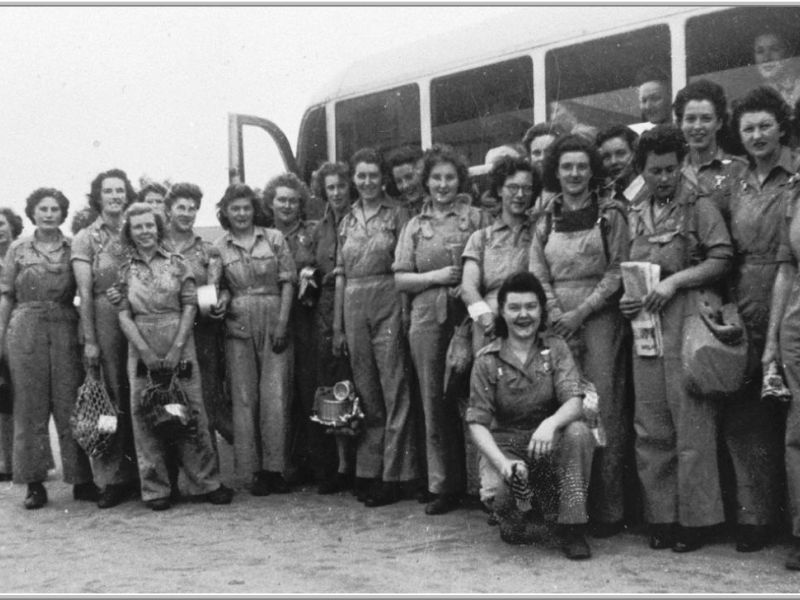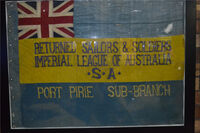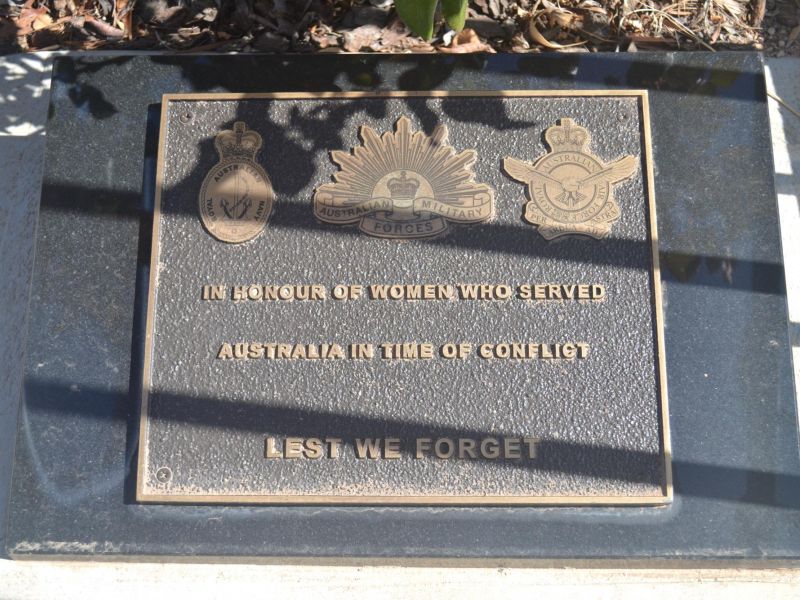The Australian Women's Land Army
The Australian Women's Land Army (AWLA) was formed in 1942 in response to the acute shortage of rural workers.
The AWLA organised the employment of female workers in the agricultural sector to replace male workers who had joined the armed forces. They took on hard physical farm work such as animal husbandry, fumigating rabbits in warrens, shearing sheep, ploughing fields and crop work. The average working week for an AWLA member was in excess of 48 hours.
On Monday 16th August 194,3 Miss Dorothy Marshall, superintendent of the AWLA in South Australia, visited the National Service Office in Gertrude Street, Port Pirie, to interview prospective members and interested persons.
The members were divided into three sections — full time rural workers, full time seasonal workers and specific seasonal workers. Full time rural workers worked on farms and stations where they were needed all the year round.
Full time seasonal workers were employed all the year but their work and locations varied with the seasons. For instance, they may have begun pea picking in the Port Pirie district, then picked cherries and other soft fruits in the Adelaide Hills, then moved to grape picking in the dried fruit districts of the Murray, followed by grape pruning there or in a metropolitan area, and finally, flax spreading at Auburn, Laura, Morphett Vale or Mount Gambier. This covered a whole year's cycle of work.
These two types of workers, full time rural and full time seasonal, were given government work and street uniforms after completing their months’ probation period to show they were suitable for the work.
Specific seasonal workers were called upon only for seasonal work that needed more labour than the full time seasonal workers could cope with. They wore the AWLA badge but not the uniform.
At Toora Vale, near Berri, South Australia, Patricia ‘June’ Swan of 27 Mansom Street, Port Pirie, worked in a potato dehydration factory. Workers were required to wash and scrub potatoes in both cold and hot water; peel, eye, slice, blanche and put them through a dehydrator before canning, boxing and dispatching the finished potato product to Allied troops overseas.
June had worked in a pipe-making works prior to signing up as a ‘land girl’. She lived in a hostel built by the Toora Vale Company which was handed over to the AWLA rent-free. Her day started at 5:45am when the ‘dressing bell’ rang, before breakfast was served at 6:15am. Sandwiches were made for lunch before clamouring aboard a bus at 7:00am for a 20-minute drive to the factory. June returned home again at about 5:20pm in the evening.
On Boxing Day 1944, June enlisted with the army and was attached to the Army Inspection Staff, Proof and Experimental Section at Port Wakefield, South Australia. She worked there until her discharge on August 6th 1946.
The AWLA disbanded on the 31st December 1945.
- Australian War Memorial https://www.awm.gov.au/articles/encyclopedia/homefront/land_army

 RSL (Port Pirie Sub Branch) Inc.
RSL (Port Pirie Sub Branch) Inc.